There’s no denying how adorable the Aussie (Australian Shepherd) is. They’re incredibly friendly, intelligent, and super fluffy dogs. However, with every dog breed there’s some key things to consider before adopting one (besides how cute they are). Here are 5 things you need to know before owning an Australian Shepherd:
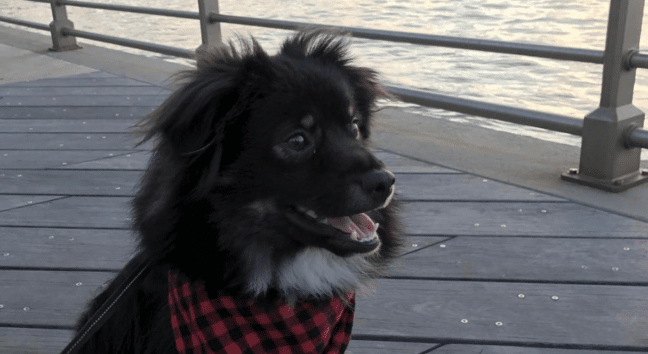
@ollielai
5 Things to Know about Australian Shepherd’s
@ollielai
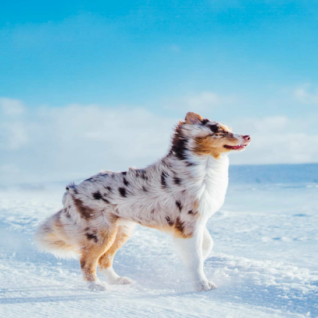
@aussiekiba
Australian Shepherds Have a Lot of Energy
Aussie’s were originally bred to be herding animals, meaning they’re able to run around all day rounding up livestock. Due to their working nature, they have an over-abundance of energy that can cause problems if they don’t get enough physical and mental stimulation.
This means your Aussie needs to be exercised everyday, and usually pretty rigorously. If you have a large yard, Aussie’s love playing fetch with a ball or frisbee. Plus, you’ll crack up at them jumping in the air trying to catch their toy. They have pretty much no limits on how many walks or hikes they can go on per day, but at a minimum they require at least 1 hour of exercise every day. Needless to say, you should probably not get an Aussie if you don’t have a lot of time to exercise them (or else they may make their own fun by digging in your trash and destroying your furniture!).
Australian Shepherds Shed… A Lot
One reason Aussie’s are so adorable is that they’re incredibly fluffy. However, fluffy dogs tend to also shed a lot. Therefore, if you’re opposed to brushing them two to three times a week, or having dog hair on your clothes, carpet, furniture, and pretty much everywhere else, an Aussie may not be a great choice for you.
Aussie’s have what is known as a double coat. The upside is that this means they usually require very little professional grooming. The downside is that they require extra brushing to help keep their fur from matting. They also have some key areas that require special attention. Their feet grow long hair around their toes that needs to be trimmed often. The hair behind their ears also usually needs to be brushed more often and/or thinned out. Otherwise, the hair behind their ears will mat really easily.
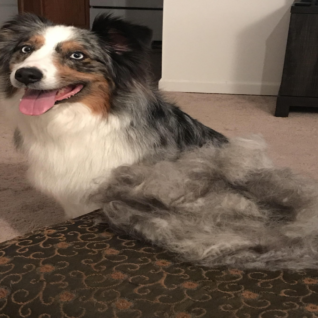
reddit.com
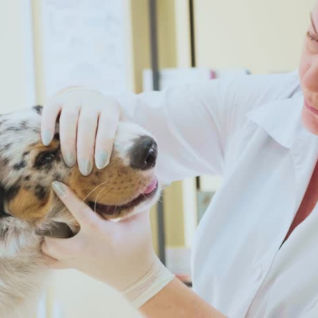
shutterstock.com
Australian Shepherds Can Have Some Health Issues
Aussies, like most working dogs, are prone to some health issues. Some of the most common are allergies, tumors, eye problems, various joint dysplasia, and epilepsy. Along with these health conditions, it’s important to have your Aussie tested for the MDR1 genetic mutation (most breeders will do this before you bring home your new pup, but it should be done for shelter dogs too).
The MDR1 genetic mutation stands for a multi-drug resistance mutation that commonly occurs in various types of shepherds and collies. It’s important to know if your Aussie has this mutation due to the increased drug resistance to many common drugs such as ivermectin and cancer treatments. If your dog tests positive for MDR1 it’s important to inform your veterinarian so that they know which drugs to use and avoid to ensure the health of your pup.
Aussie’s are also heavily prone to elbow and hip dysplasia just like most medium and large-sized dogs. Dysplasia is caused by an excess laxity within the joint. However, there are some steps you can take to help prevent the onset of dysplasia by ensuring your pup eats a proper diet, gets plenty of exercises, and limit the amount of time your Aussie spends laying on a hard floor.
Australian Shepherds Become Overly Attached
A common nickname for Aussies are “velcro-dogs”. This is because Aussie’s love to be with their owner as much as they can. Aussie’s love to be involved in whatever you’re doing, and will usually pick one person that they become overly-attached to. Aussie’s are usually so close to you when you’re walking that they brush against your legs, which can lead to tripping or falling if you aren’t careful. This might be a concern if you are prone to falling or have children who topple easily. Keep this in mind when considering an Aussie. Plus, although it’s endearing that your Aussie wants to spend as much time as they can with you, it can lead to other problems. Many times, when your dog cannot be with you they will show signs of separation anxiety, depression, and even aggression.
Ways to deter your Aussie from developing these attachment issues is by encouraging them to socialize with others in the house. This will help them from attaching to just one person. You can also try ignoring them when they’re seeking your attention every once in a while, or giving them food puzzles and other toys to distract them. Aussies may not be the best choice for those who are away from home for most of the day or for days at a time.

@finnstagram_aussiepup
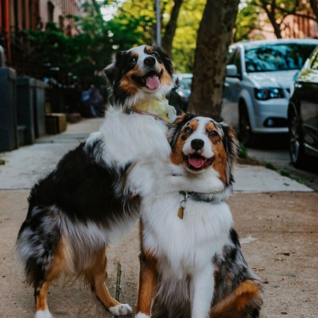
@laylalovesgnocchi
Australian Shepherds Can be Very Protective
Aussie’s are naturally very protective dogs because of their instinct to protect their herd. Once your Aussie views you, your family, and your home as a part of their herd, they will defend you relentlessly from any perceived danger.
Aussie’s may be friendly to you, but they are usually very wary of strangers. This is why it’s important to ensure that your Aussie is properly socialized as a puppy, otherwise, they may become too aggressively protective as an adult. Although they make great watchdogs, you probably don’t want them snapping at every stranger and dog they come across.
Make sure to always be cautious when introducing your Aussie to new people or animals. Most Aussie’s are quick to make friends due to their incredibly social nature, but they can easily misread a situation and become overprotective to defend you. Such as two kids roughhousing, or neighbors yelling can cause your Aussie to protect their own very quickly. To combat this, ensure you keep your Aussie well-socialized so that they learn to better judge social situations.
Do you have an Aussie? We’d love to see pictures of your pup! If you’re lucky we may even feature you on our spotted Saturday posts! Check us out at @dogspotted on Instagram.


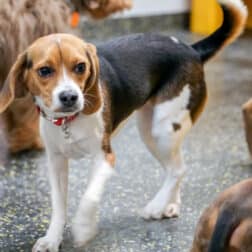
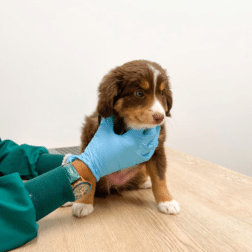
Conversation